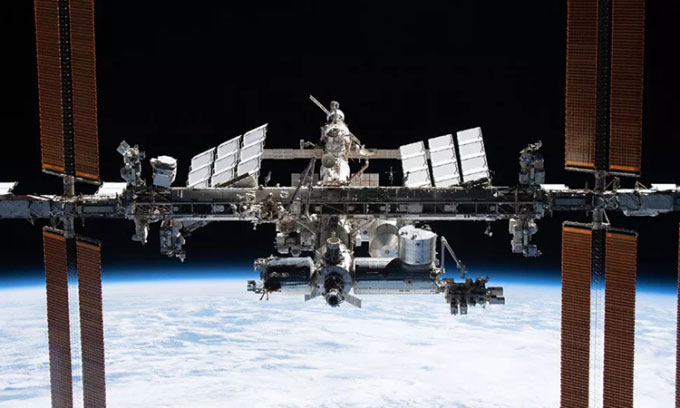The U.S. government has committed to extending the operation of the International Space Station (ISS) for an additional six years, NASA Administrator Bill Nelson announced on December 31.

SpaceX’s Crew Dragon spacecraft photographed the International Space Station last November. (Photo: SpaceX/NASA).
“The ISS is a beacon for international scientific collaboration and has provided tremendous advancements in science, education, and technology for humanity over the past 20 years,” Nelson emphasized. “I am very pleased that the Biden-Harris administration has committed to extending the station’s operations until 2030.”
The U.S. government’s decision has received support from partners, including the European Space Agency (ESA), the Canadian Space Agency, and the Japan Aerospace Exploration Agency (JAXA). As for Russia, its federal space corporation Roscosmos has proposed to withdraw from the project in 2025 to build its own space station, but recently sent a new multifunctional laboratory module named Nauka and a spacecraft docking port named Prichal to the ISS.
The International Space Station was previously funded for use until 2024. NASA had even planned to transition operations from the ISS to private stations in low Earth orbit. Earlier last month, the agency awarded over $400 million to three companies—Blue Origin, Nanoracks, and Northrop Grumman—to develop designs for space stations and other “commercial destinations” in space. This transition will allow them to save money and focus on the Artemis missions to the Moon and Mars.
“The continued U.S. participation in the ISS will enhance innovation and competitiveness, as well as promote the research and technology necessary to land the first woman and the first person of color on the Moon under NASA’s Artemis program and pave the way for the first human to set foot on Mars,” Nelson added.
Since its launch into orbit in 1998, the International Space Station has hosted over 3,000 research investigations involving more than 4,200 scientists from around the world.


















































